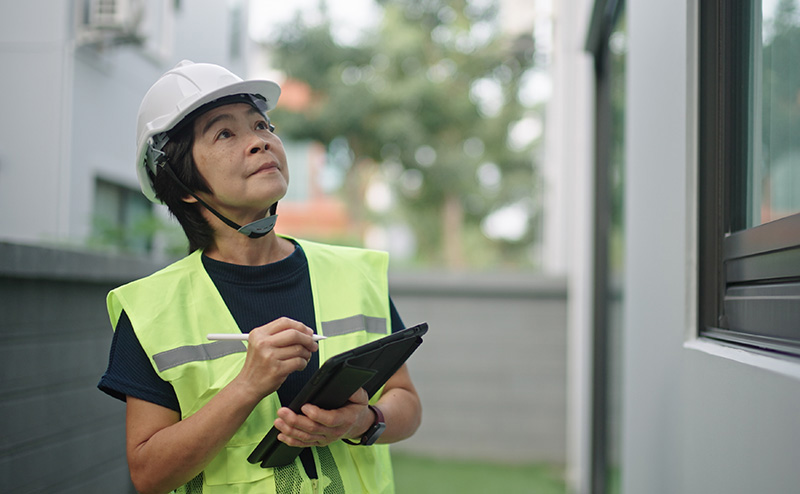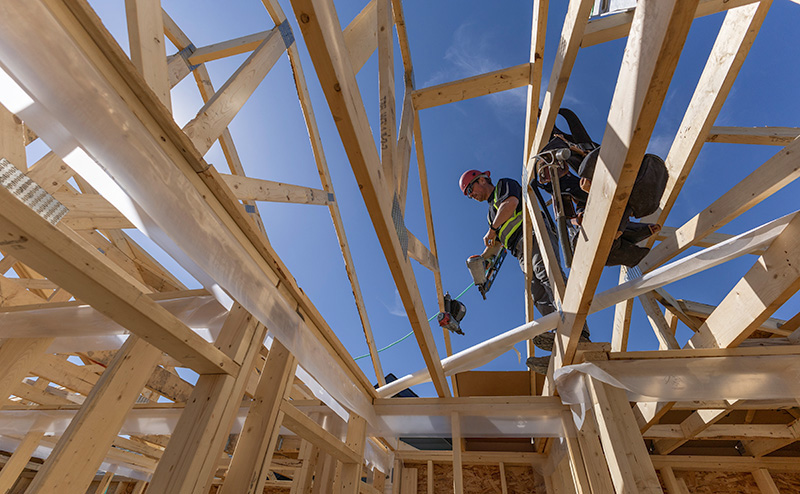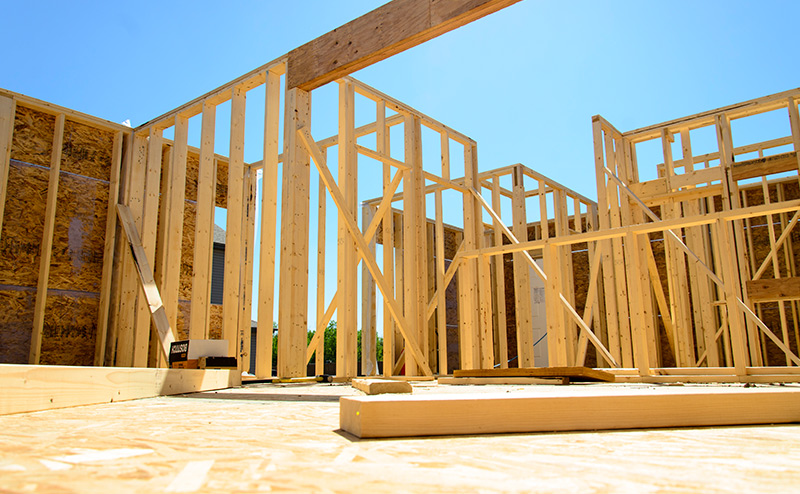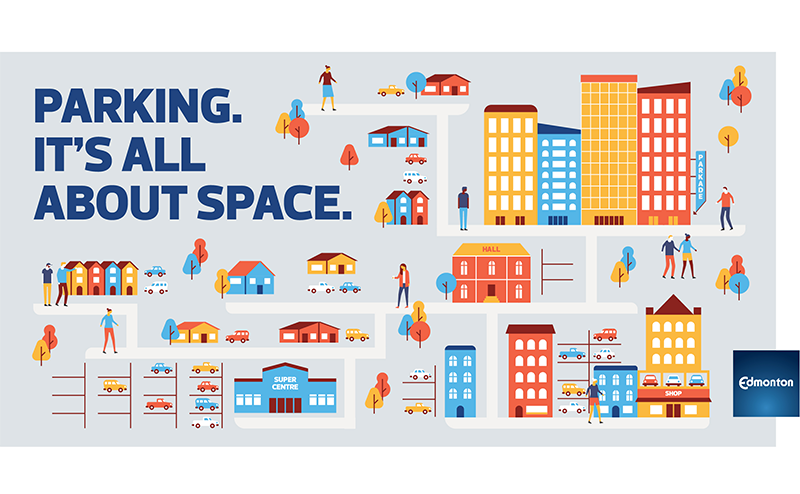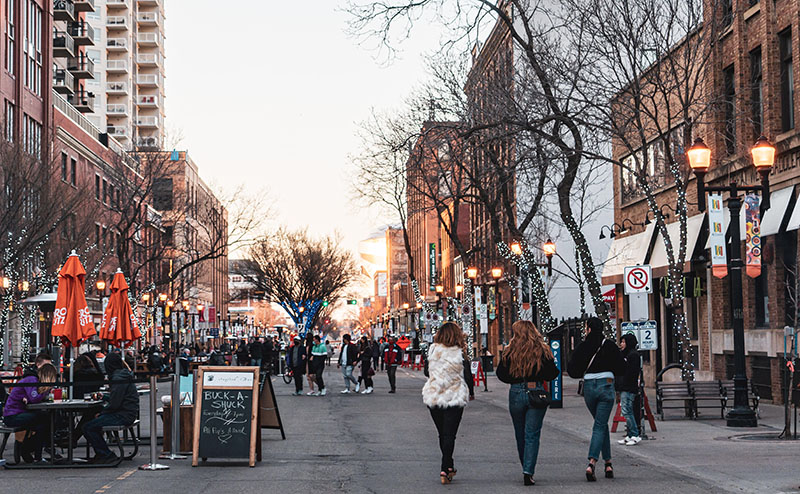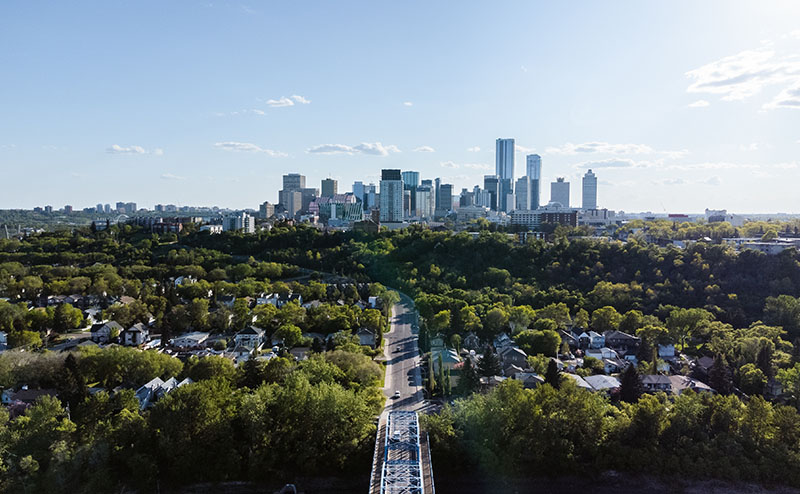
We make it easier to build, grow and invest in Edmonton. Our service improvements get projects moving faster, creating jobs and economic growth in our city.
Saving Time and Money
We get it. Delays cost money. We’re committed to saving people time and money by making permitting and licensing faster and easier, so residential, commercial and industrial development can thrive in Edmonton.
Edmonton is leading the way by embracing technology, simplifying regulations and reducing barriers to help business owners, developers, homeowners and entrepreneurs get the permits and licences they need. We’re creating conditions to start building homes faster, launch and expand local businesses sooner, and invest in Edmonton with confidence. Improving our services means Edmontonians can move into homes sooner, eat out at more new restaurants, buy the goods or services they need from new businesses and open a business quicker.
We collaborate with partners and listen to our customers to make things better. We’ve been doing it for years and our work is getting recognized.
Residential Service Improvements
We are leaders in using technology such as AI to speed up permit reviews and approvals. These improvements ensure houses and home improvement projects like decks and garages get built faster so people can enjoy them sooner, saving time and money.
House Development Permit Auto-Review
AI streamlines and speeds up permit approvals while ensuring compliance with the Zoning Bylaw for single and semi-detached housing development permits in Edmonton’s developing areas, typically outside Anthony Henday Drive.
House Construction AI Inspections
We use AI to predict the outcomes of inspections to identify those with a high probability of passing which do not need an on-site inspection. This saves home builders time and enables us to better use our resources to target inspections for higher risk projects.
Residential Permit Auto-Reviews
Permit approvals for detached garages, decks and solar panels are done online and are faster with AI-driven auto-reviews, helping speed up home improvement projects.
Digital Tools for Home Improvement Permits
Our digital guide helps homeowners and contractors determine which permits and requirements apply to their specific home improvement project, making the permitting process easier and saving them time.
What Business Owners Are Saying:
"The improvements that they’ve made have been great for us. It saves our production team a lot of time when applying for permits, and in turn, it’s all about the customer at the end of the day so we can get out there, we can build their garage faster."
- Nick Northup, President, Premier Built Garages
Commercial Service Improvements
Opening a business is not easy. But getting a business licence should be. We’re taking actions to make it easier so they can open their doors faster. In 2024, we reduced the time it takes us to process licences by 30 per cent by enabling applicants to link up their development and building permits in our online self-serve portal. Here are other ways we are continuing to improve our services.
Better Customer Experience for Business Permits
We use automated communication and online guidance to support businesses with timely information about next steps and knowing what to expect.
Improved Fire Inspection Requirements for Business Licences
Fire inspections are no longer required to be completed before a business licence is issued, reducing timelines by up to two weeks for entrepreneurs.
Guaranteed Timelines for Industrial Development
The Guaranteed Industrial Development Timelines program guarantees a decision on development permits and partial release of building permits, saving time and money for investors. It’s part of our plan to attract industrial investment in Edmonton.
Predictable Development and Building Permit Timelines
We aim to offer predictable service by processing development and
construction-related applications within specific timelines. We publish updated application processing times and building permit application wait times, helping businesses, residents and investors plan their projects.
- A modern Zoning Bylaw (2024) streamlines development requirements, creating more opportunities for diverse housing types city-wide and increased business opportunities, encouraging amenities such as child care closer to home.
- Edmonton was the first city in Canada to use artificial intelligence (AI) to auto-review development permits for new homes and residential improvements like garages and decks, significantly reducing approval times.
- 30 per cent reduction in time to process business licences from 2023
- $4.2 billion in residential and commercial building permit construction value, up 31 per cent from 2023
- 50 per cent more residential development and building permits were issued in 2024 than in 2023
- 91 per cent of development permits are issued within 20 days
- 84 per cent of building permits are issued within 35 days
- 180,000 safety inspections are completed each year, or about 700 per day
- 15,190 new dwelling units were approved citywide in 2024, up 54 per cent from 2023
The Canadian Institute of Planners awarded the City as a 2025 Planning Excellence winner for our Zoning Bylaw Renewal Initiative, a five-year project to rethink how, what and why we regulate zoning and land development.
The Canadian Home Builders' Association, in its 2022 and 2024 Municipal Benchmarking Studies, ranked Edmonton as Number 1 out of Canadian municipalities for faster approval timelines, moderate development fees and planning approval processes and features.
The Government of Alberta recognized the City with the Red Tape Reduction Municipal Excellence Award (2022) for our Permit and Licensing Improvement Initiative involving collaboration with customers, city building partners and staff to reduce barriers and encourage investment in Edmonton.
The Canadian Institute of Planners awarded the City as a 2021 Planning Excellence winner for our Open Option Parking project, recognizing it as the first-of-its kind in Canada.
"Edmonton’s success did not happen by accident, nor overnight. Being in position to offer the best market affordability for housing in one of Canada’s biggest cities, coupled with top-of-class national benchmarking results in 2024, is a testament to the significant efforts and diligence of City Council and administration as well as the tenacity and commitment of our industry to develop and build the spaces and places that welcome people home."
– Kalen Anderson, CEO, BILD Edmonton Metro, Benchmarking Study 2024 — Edmonton, Canadian Home Builders' Association.
Our Approach to Support Development and Business Growth
Edmonton’s ability to keep, attract and grow business by reducing barriers is affected by how the City regulates and provides permitting and licensing services to businesses, homeowners, developers and investors. Our improvements are guided by the need to balance providing timely service and ensuring what is built meets safety and other regulatory requirements while fitting into surrounding neighbourhoods and respecting community interests.
We aim to create efficient processes that encourage residential and commercial investment in Edmonton, which are key goals of The City Plan and the Economic Action Plan.
Regulatory Changes
The City Plan (2020) highlights the need to simplify our land use policies so that we can help prepare Edmonton to grow to a city of 2 million as our population increases. Through projects like District Planning, we are doing that and reducing barriers to ensure residential and commercial growth can take place to support our growing city. Implementing the City Plan requires us to coordinate our plans and regulations.
Easier to Build
A new award-winning Zoning Bylaw took effect January 1, 2024, after a five-year renewal project to overhaul our zoning rules on what gets built where, from parks to playgrounds, housing and business. The bylaw simplifies and streamlines our permitting process to support emerging residential and commercial land development trends, reduce barriers to new housing and businesses, and encourage investment in Edmonton.
Easier to Launch and Grow Businesses
A new Business Licence Bylaw took effect January 17, 2022, with more clear, consistent and flexible regulations to reduce barriers for businesses while equipping the City to respond more quickly to new and emerging businesses. Changes also include better-defined licence categories, a simplified fee schedule and reduced fees for businesses.
Easier to Decide Parking Needs
A first of its kind in Canada, Open Option Parking was introduced June 23, 2020, giving businesses, developers and homeowners the choice on how much on-site parking is needed on their properties. With this move, the City eliminated minimums for on-site parking across Edmonton. It empowered businesses and homeowners as knowing best how to use their properties and meet their parking needs based on their operations, activities or lifestyle.
Business Support Services
The Economic Action Plan is a 10-year roadmap to build a vibrancy, inclusive and sustainable economy. It’s a key part of The City Plan with a focus on creating jobs, attracting investment, supporting businesses and strengthening Edmonton’s economy. We aim to reduce barriers for businesses of all sizes and stages so we can encourage investment and success here. We provide support in a number of ways:



